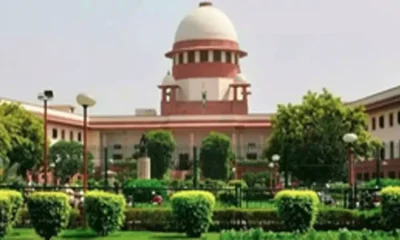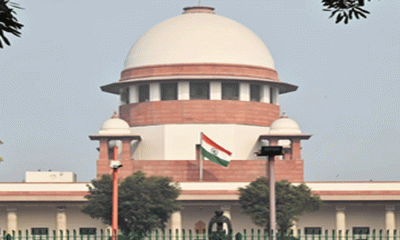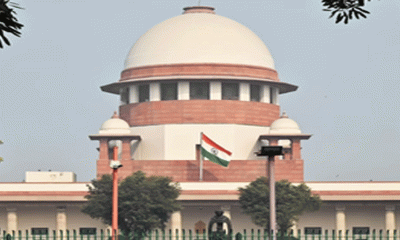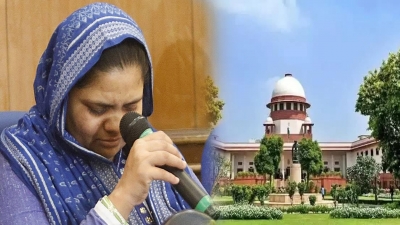Uncategorized
‘Violates right to privacy, invasive to physical autonomy’, SC on DNA testing of two children
The Supreme Court recently set aside the Telangana High Court order permitting DNA testing to determine the paternity of two children in a matrimonial dispute, holding such a direction would be invasive to the physical autonomy of a person and also violate the right to privacy.
A bench of Justices Aniruddha Bose and Vikram Nath said: “The trial court as also the revisional court had completely ignored the said factor and proceeded as if the children were material objects who could be sent for forensic analysis.”
It noted that the substance of the complaint was not related to paternity of the children of the mother, who claimed she had been forced to cohabit and develop a physical relationship with her brother-in-law, in a dowry harassment case with her husband and his brother.
The woman had lodged a complaint against her husband and his brother under Sections 498A, 323, and 354 and other ancillary provisions of the Indian Penal Code, 1860.
The top court noted that the trial court allowed the woman’s application mechanically, on the premise that the DNA fingerprint test is permissible under the law. It said that both the trial and the high court ignored that the paternity of the children was not in question in the subject-proceedings.
It further added that merely because something is permissible under the law cannot be directed as a matter of course to be performed particularly when a direction to that effect would be invasive to the physical autonomy of a person.
The bench said: “The consequence thereof would not be confined to the question as to whether such an order would result in testimonial compulsion, but encompasses right to privacy as well. Such direction would violate the privacy right of the persons subjected to such tests and could be prejudicial to the future of the two children who were also sought to be brought within the ambit of the trial court’s direction.”
In February 2017, the high court had ordered a DNA test on the claim made by the mother of two children. The woman had filed an application under Section 45 of the Indian Evidence Act with the appeal seeking direction to obtain an expert opinion for the DNA fingerprint test comparing blood samples of her two daughters. The trial court allowed her plea, which was challenged by her husband and his brother before the high court. The high court held that such a DNA fingerprint test was permitted under Sections 53, 53A and 54 of the Criminal Procedure Code (CrPC).A
Setting aside the high court order, the top court said: “The judgment under appeal, blood sampling of the children was directed, who were not parties to the proceeding nor were their status required to be examined in the complaint of the respondent no.2. This raised doubt on their legitimacy of being borne to legally wedded parents and such directions, if carried out, have the potential of exposing them to inheritance related complication.”
Uncategorized
UN Security Council demands release of personnel detained by Yemen’s Houthis
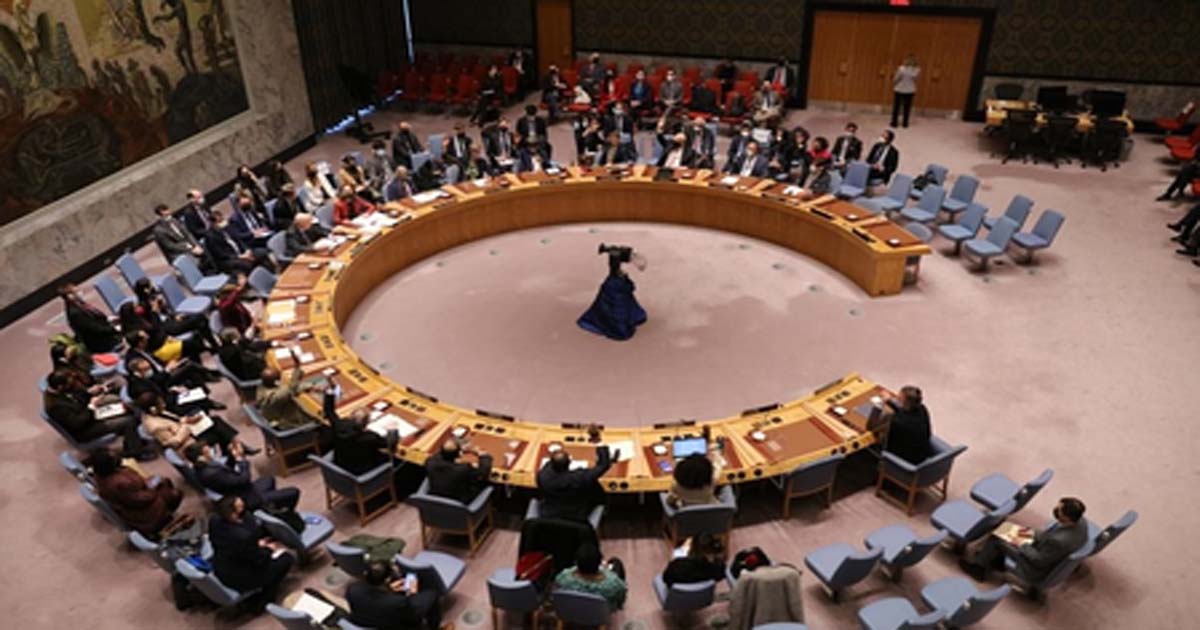
United Nations, June 6: The Security Council demanded the immediate and unconditional release of personnel from the United Nations, nongovernmental and civil society organizations and diplomatic missions who were detained by the Houthis in Yemen.
In a press statement on Thursday, the members of the Security Council reiterated that all threats to those delivering humanitarian aid and assistance are unacceptable. They reiterated their demand that the Houthis ensure respect of international humanitarian law with regard to safe, rapid and unimpeded humanitarian access to ensure assistance can reach civilians in need.
The council members welcomed the continued work of the United Nations through all possible channels to secure the safe and immediate release of those detained.
According to media reports, Council members acknowledged that the Eid al-Adha holidays would be particularly difficult for those detained, their families and others who are themselves living in fear of detention.
This week marks one year since the wave of detention by the Houthis. According to the world body, 23 UN staff members and five personnel from international nongovernmental organizations remain detained. One UN staff member and another from Save the Children have died in detention.
In the past few days, UN Secretary-General Antonio Guterres as well as heads of UN agencies and programs have called for the release of the detained personnel.
Earlier on June 3, UN Secretary-General Antonio Guterres also called for the immediate and unconditional release of UN staff detained by the Houthis in Yemen.
“This June marks one year since the arbitrary detention of dozens of personnel from the United Nations, national and international NGOs, civil society organisations, and diplomatic missions by the Houthi de facto authorities in Yemen,” he said in a statement.
“I renew my call for their immediate and unconditional release, including those held since 2021 and 2023, and most recently this January.”
The United Nations and its humanitarian partners should never be targeted, arrested or detained while carrying out their mandates for the benefit of the people they serve, said Guterres.
International News
Death toll from overnight US airstrikes on Yemen’s capital rises to 3
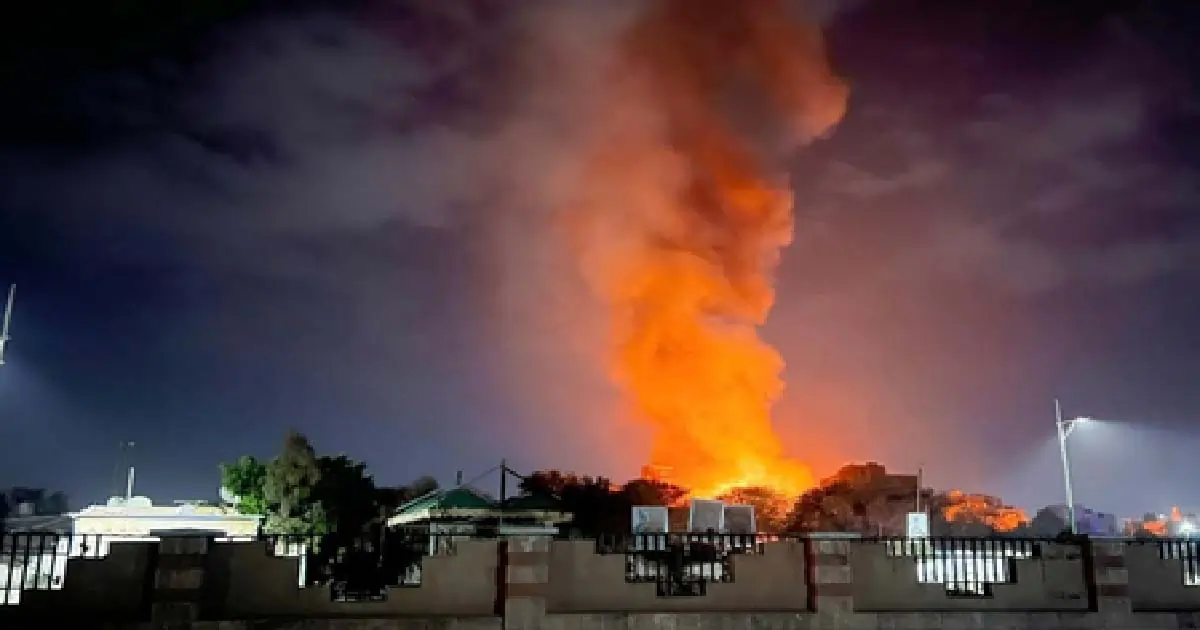
Sanaa, April 10: The death toll from fresh US airstrikes on Yemen’s capital Sanaa rose to three, with several others wounded, medics and health authorities told Xinhua.
The airstrikes targeted the Al-Nahdayn area which is surrounded by densely residential neighbourhoods on Wednesday late night.
Shrapnel hit many houses and shattered windows, causing damage and killing three residents. Several wounded civilians have been rushed to hospital.
This was the latest wave of US airstrikes on northern Yemen since the US military resumed airstrikes on the Houthi group on March 15 to deter the group from targeting Israel and US warships in the northern Red Sea.
The airstrikes also targeted several locations across other northern areas late on Wednesday, including the Red Sea port city of Hodeidah and the Island of Kamaran, where no casualties have been reported so far.
The US military has yet to comment, Xinhua news agency reported.
Earlier on April 9, Yemen’s Houthis said that they had shot down another US MQ-9 drone, the 18th since the start of the war in Gaza, the military group said.
“Our air defences shot down a US MQ-9 drone in the airspace of Al-Jawf province, using a locally manufactured surface-to-air missile,” the group’s spokesperson, Yahya Sarea, said in a televised statement aired by Houthi-run al-Masirah TV.
“This is the 18th US drone shot down by our air defences since October 2023,” Sarea said, referring to the timeframe when his group began launching attacks against Israeli targets to show solidarity with Palestinians a few days after the outbreak of war in Gaza on October 7, 2023.
The last MQ-9 was reportedly shot down by the Houthi forces on Thursday over the Red Sea port city of Hodeidah.
This type of drone has become well-known to Yemenis because it has been hovering overhead across northern Yemeni provinces almost daily since October 2023.
The Houthis, who control much of northern Yemen, have been launching regular rocket and drone attacks against Israel and disrupting “Israeli-linked” shipping in the Red Sea since November 2023 to show solidarity with Palestinians in the Gaza Strip amid their conflict with Israelis.
Uncategorized
SC quashes Gujarat Police FIR against Cong MP Imran Pratapgarhi
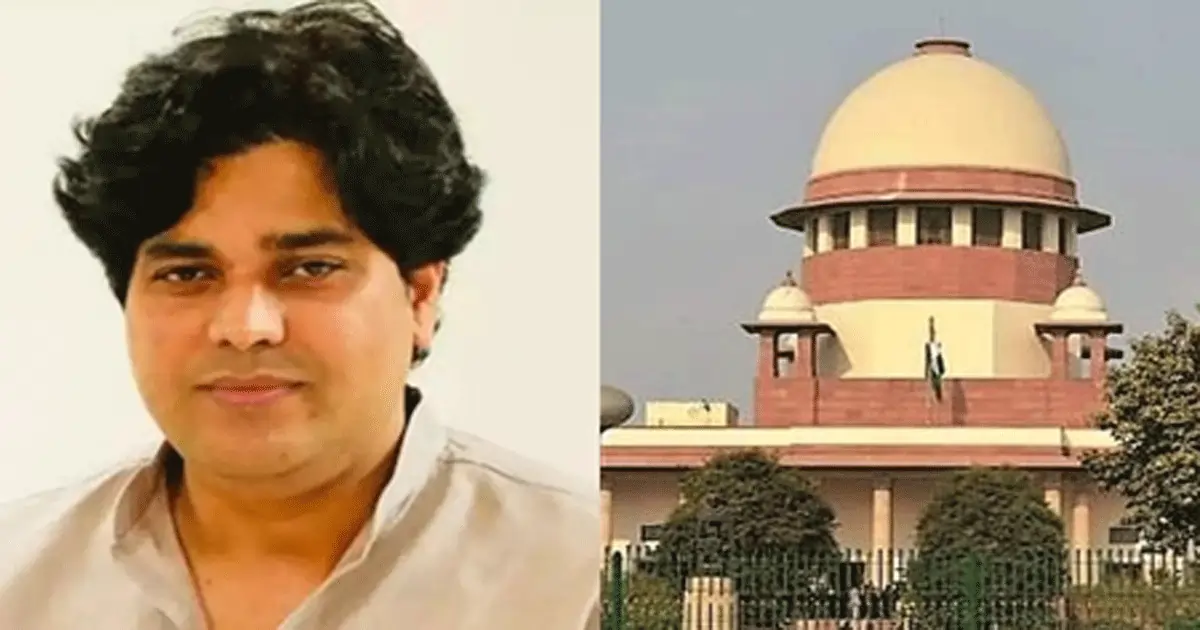
New Delhi, March 28: The Supreme Court on Friday quashed an FIR registered in Gujarat against Congress Rajya Sabha member and poet Imran Pratapgarhi for allegedly disturbing social harmony.
Pronouncing its verdict, a bench of Justices Abhay S. Oka and Ujjal Bhuyan said that no criminal offence was made out and allowed Pratapgarhi’s plea to quash the complaint alleging that a video posted by the Congress leader on Instagram, which featured a poem, was inciting unrest and harming social peace.
“Even if a large number of persons dislike the views expressed by another, the right of a person to express the views must be respected and protected. Literature, including poetry, drama, films, satire, and art, enriches human life,” observed the Justice Oka-led Bench of the apex court.
After the Gujarat High Court had turned down Pratapgarhi’s plea to quash the FIR, he moved a special leave petition before the Supreme Court.
In an interim order passed on January 21, the Justice Oka-led Bench shielded Pratapgarhi from arrest as it issued a notice to the Gujarat government in the matter, and also, in the meantime, ordered that no coercive steps should be taken against the petitioner in any manner on the basis of the impugned FIR.
During the course of the hearing, the apex court raised questions over the registration of an FIR. “Please see the poem. It’s ultimately a poem. It is not against any religion. It is not against any particular community. Please apply your mind to the poem,” remarked the Justice Oka-led Bench.
The complaint against Imran Pratapgarhi dates back to January 3, when a complaint was filed at the Jamnagar police station by an advocate’s clerk. The complainant alleged that a video posted by Pratapgarhi on Instagram, which featured a poem, was inciting unrest and harming social peace.
Refusing to quash the FIR, the Gujarat HC stated that as a lawmaker, the Congress leader should have acted responsibly and respected the legal process. It further directed him to submit an affidavit clarifying the origin of the poem used in the video.
Pratapgarhi was asked to specify whether the poem was written by him or sourced from elsewhere, and if so, provide the details of its author.
He told the High Court that the poem in question was either written by the renowned poets Faiz Ahmed Faiz or Habib Jalib. He stated that he had found the poem through online sources, including Internet forums and chat rooms, but could not provide a definitive source.
He presented screenshots from an AI tool (ChatGPT) to support his claims. He argued that the poem, which promotes love and non-violence, was harmless and did not constitute a criminal act. However, the prosecution disagreed, asserting that as a parliamentarian, he had a responsibility to act with caution and not to incite public unrest through social media.
The police had issued a notice to Imran Pratapgarhi on January 4, asking him to appear on January 11, but he failed to cooperate with the investigation.
The Gujarat High Court highlighted that Imran Pratapgarhi’s action could not be defended simply based on his status as a public figure. His failure to appear before the authorities and his lack of clarity about the origin of the poem were key factors in turning down his petition. The Gujarat HC ultimately dismissed Pratapgarhi’s plea, reinforcing that lawmakers must uphold the law and act responsibly.
-

 Crime3 years ago
Crime3 years agoClass 10 student jumps to death in Jaipur
-

 Maharashtra1 year ago
Maharashtra1 year agoMumbai Local Train Update: Central Railway’s New Timetable Comes Into Effect; Check Full List Of Revised Timings & Stations
-

 Maharashtra1 year ago
Maharashtra1 year agoMumbai To Go Toll-Free Tonight! Maharashtra Govt Announces Complete Toll Waiver For Light Motor Vehicles At All 5 Entry Points Of City
-

 Maharashtra1 year ago
Maharashtra1 year agoFalse photo of Imtiaz Jaleel’s rally, exposing the fooling conspiracy
-

 National News1 year ago
National News1 year agoMinistry of Railways rolls out Special Drive 4.0 with focus on digitisation, cleanliness, inclusiveness and grievance redressal
-

 Maharashtra1 year ago
Maharashtra1 year agoMaharashtra Elections 2024: Mumbai Metro & BEST Services Extended Till Midnight On Voting Day
-

 National News1 year ago
National News1 year agoJ&K: 4 Jawans Killed, 28 Injured After Bus Carrying BSF Personnel For Poll Duty Falls Into Gorge In Budgam; Terrifying Visuals Surface
-

 Crime1 year ago
Crime1 year agoBaba Siddique Murder: Mumbai Police Unable To Get Lawrence Bishnoi Custody Due To Home Ministry Order, Says Report



